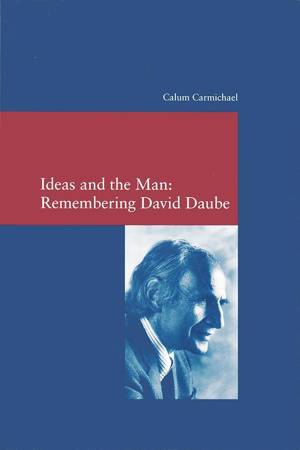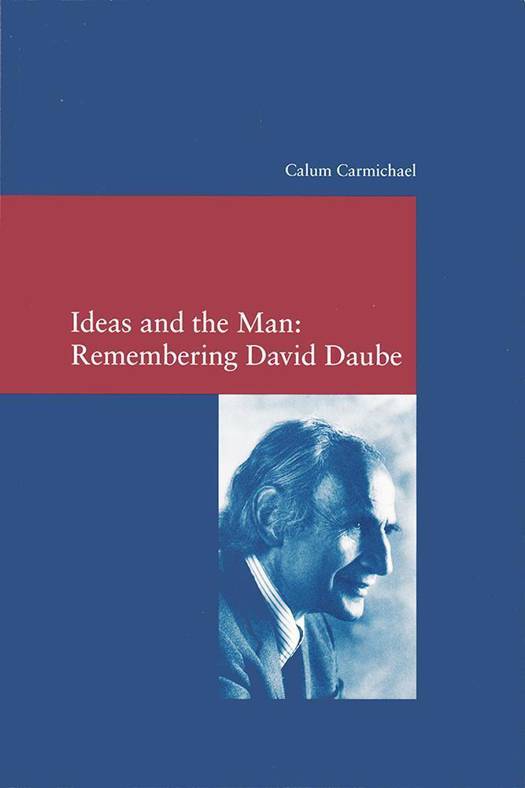
- Afhalen na 1 uur in een winkel met voorraad
- Gratis thuislevering in België vanaf € 30
- Ruim aanbod met 7 miljoen producten
- Afhalen na 1 uur in een winkel met voorraad
- Gratis thuislevering in België vanaf € 30
- Ruim aanbod met 7 miljoen producten
Zoeken
Omschrijving
One of the last of the Renaissance minds, David Daube bridged the gap between humanism and religion and showed that the study of ancient law was uncannily relevant to how we function today. Written by his former Oxford pupil and life-long colleague, this memoir captures the mischievous wit and spirit of enlightenment that Daube exuded both in person and in his scholarship. The vividness of his personality and the vibrancy of his intellect made an indelible impression on everyone he encountered. Daube's career as a scholar spanned the entire 20th century with roughly equal periods of time spent first in Germany, then in Great Britain, and latterly in the United States. Coming from an orthodox Jewish upbringing that from boyhood included instruction in Aramaic and Hebrew, he became absorbed, in the 1920s, in the classical tradition of the German educational system. His rare abilities were recognized and cultivated by outstanding scholars in Germany in the 1920s and in Cambridge (England) in the 1930s and 40s. Although he gave up his commitment to an orthodox Jewish life, its influence remained. His immersion in the intricacies of a number of legal traditions made him alert to elements of the law that find expression in the world of literature, be it Christian, Greek, Jewish or Roman. One of his major contributions was to revolutionize prevailing perceptions about the New Testament by his sophisticated understanding of how Talmudic law and literature illuminate that body of material. Most striking of all was that, no matter what branch of knowledge engaged Daube's attention, he exhibited a unique capacity to convey unexpected insights about so many facets of human conduct at all times and places.
Specificaties
Betrokkenen
- Auteur(s):
- Uitgeverij:
Inhoud
- Aantal bladzijden:
- 174
- Taal:
- Engels
- Reeks:
- Reeksnummer:
- nr. 177
Eigenschappen
- Productcode (EAN):
- 9783465033639
- Verschijningsdatum:
- 1/08/2004
- Uitvoering:
- Paperback
- Formaat:
- Trade paperback (VS)
- Afmetingen:
- 160 mm x 240 mm
- Gewicht:
- 302 g

Alleen bij Standaard Boekhandel
+ 76 punten op je klantenkaart van Standaard Boekhandel
Beoordelingen
We publiceren alleen reviews die voldoen aan de voorwaarden voor reviews. Bekijk onze voorwaarden voor reviews.











